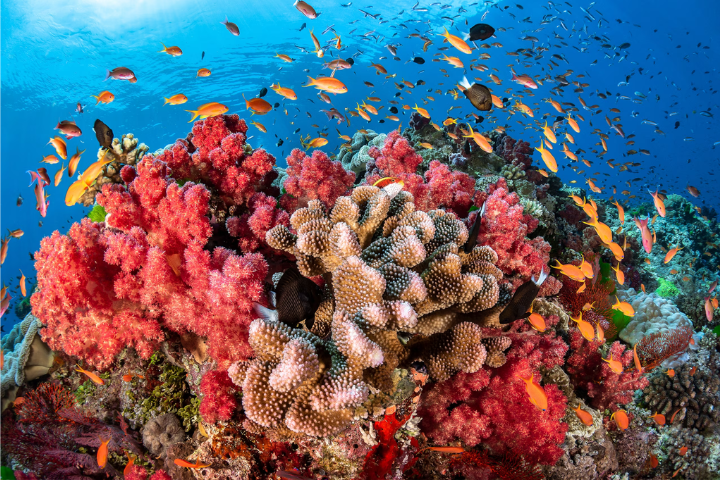Scientists warn that if current trends continue, entire ecosystems may collapse due to the threat posed by the world’s oceans becoming more acidic. Numerous species are at risk due to ocean acidification, which is mostly caused by carbon dioxide emissions from human activity. It upsets the delicate balance of marine environments.
Ocean Acidification’s Effect on Marine Ecosystems
The burning of fossil fuels and other human activities raise carbon dioxide levels. The seas absorb about 30% of this CO2, which lowers pH levels. The acidity of the ocean has risen by roughly 30% since the beginning of the industrial revolution. For calcifying organisms like corals, shellfish, and some types of plankton, which depend on carbonate ions to form their shells and skeletons, this change in chemistry presents serious difficulties. These vital carbonate ions become less available with increasing acidity, which makes it harder for these species to survive.
According to recent studies, marine habitats may see a major loss of biodiversity if current trends in CO2 emissions continue. Particularly at risk are foraminifera, tiny marine creatures that are essential to the oceanic food chain. According to research from the Australian Institute of Marine Science, if acidification doesn’t stop, these species might go extinct by the year 2100. In addition to upsetting regional ecosystems, the disappearance of foraminifera may have a domino effect on bigger marine species that rely on them for sustenance.
Consequences for Human Populations
Ocean acidification has consequences that go beyond environmental issues; it directly jeopardizes human lives and food security. Seafood is the main source of protein for almost 40% of the world’s population, and when fish populations decline as a result of acidification, hunger and malnutrition may become more severe in regions that are already vulnerable. Furthermore, the shifting oceanic conditions are already causing financial losses for businesses like shellfish farming. Shellfish farmers in areas such as the Pacific Northwest of the United States have reported notable decreases in their yield, which they attribute to the acidity of the ocean.
Scientists stress the urgent need for comprehensive efforts to cut carbon emissions and safeguard endangered marine habitats, since marine ecosystems struggle to adapt to these rapid changes. The future of human populations that depend on these ecosystems and marine life alike is precarious unless strong action is taken.




GIPHY App Key not set. Please check settings